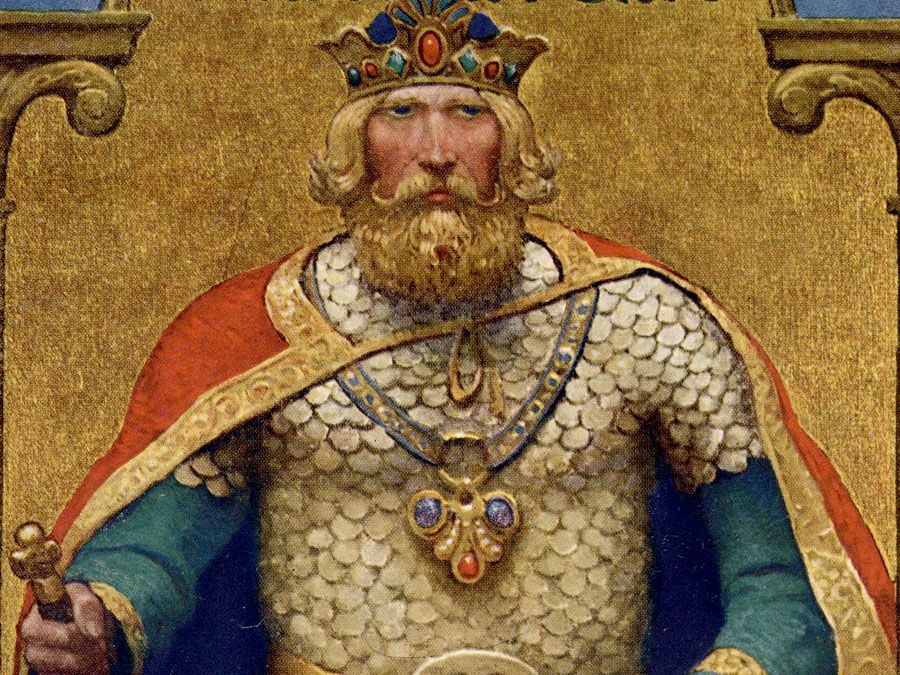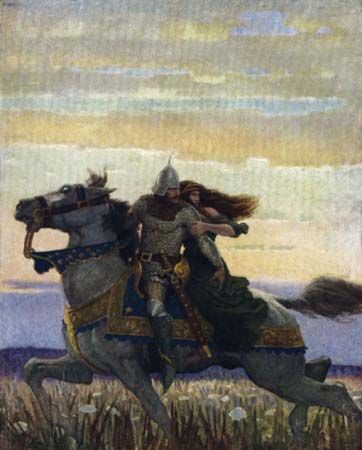Guinevere
Guinevere, wife of Arthur, legendary king of Britain, best known in Arthurian romance through the love that his knight Sir Lancelot bore for her. In early Welsh literature, one Gwenhwyvar was “the first lady of this island”; in Geoffrey of Monmouth’s inventive Historia regum Britanniae (early 12th century), she was named Guanhumara and was presented as a Roman lady. In some accounts it was suggested that she was Arthur’s second wife.
An early tradition of abduction (and infidelity) surrounded the figure of Guinevere. According to the late 11th- or early 12th-century Vita Gildae, she was carried off by Melwas, king of Aestiva Regio (literally, “Summer Region”), to be rescued by Arthur and his army. In Chrétien de Troyes’s late 12th-century romance of Le Chevalier de la charette, she was rescued by Lancelot (a character whom Chrétien had earlier named as one of Arthur’s knights) from the land of Gorre, to which she had been taken by Meleagant (a version of the story that was incorporated in the 13th-century prose Vulgate cycle). Chrétien presented her as one receiving or refusing love in the manner of ladies celebrated in courtly love lyrics. There and in the early part of the Vulgate cycle, courtly love was exalted through the passion of Lancelot and Guinevere. But in the austerely spiritual part of the Vulgate cycle, the Queste del Saint Graal, their adulterous love stood condemned, and Lancelot was unable to look directly at the Holy Grail because of it.
In the early chronicles and later in prose Arthurian romances, Guinevere was abducted by Mordred, Arthur’s nephew (or, in some versions, his son), and this action was closely bound up with the death of Arthur and the end of the knightly fellowship of the Round Table. In the early accounts Guinevere was not unwilling, but, in Sir Thomas Malory’s late 15th-century prose Le Morte Darthur, she became an unhappy victim as far as Mordred was concerned, though she was given her share of responsibility for the final disasters because her love for Lancelot had caused such bitter dissension.












